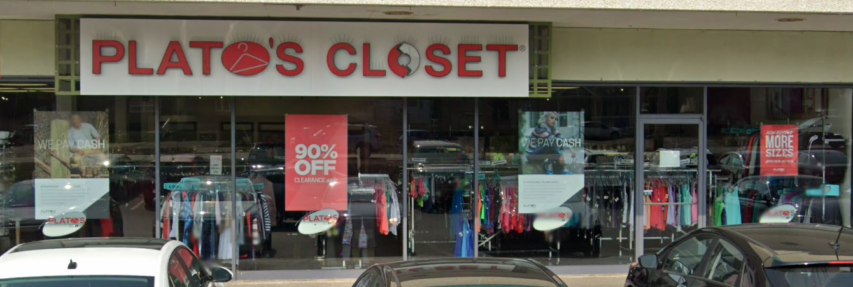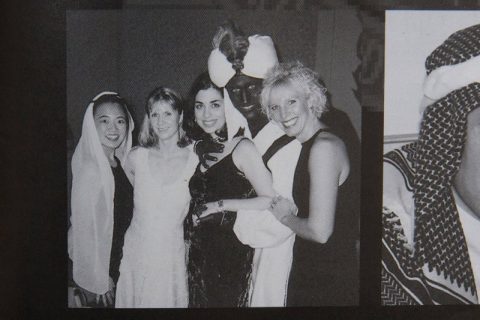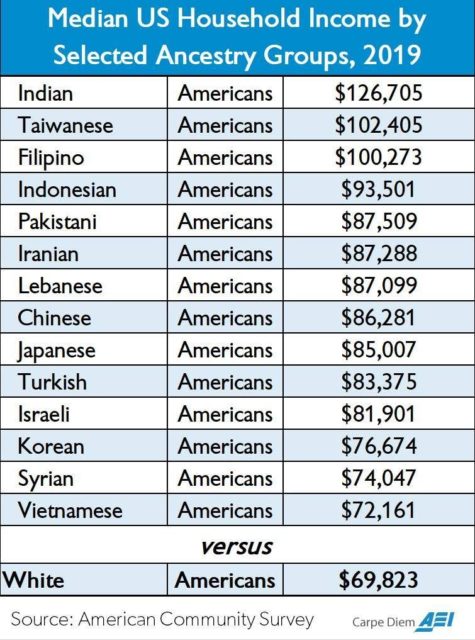The relations between the population and the state in Britain are those of duty and obligation: the duty and obligation of the population toward the state, not the other way round. During the first Covid lockdown — one is beginning to forget how many there have been — the population was enjoined to stay at home in order to “protect the NHS”, the behemoth centralized health-care system that has served it so ill for more than seventy years. In essence, the population was asked to modify its behavior for the convenience of a state bureaucracy. The government might as well have said, “Protect the Inland Revenue: Pay Your Taxes”.
The government was able to get away with so ludicrous a slogan because of one of the most successful propaganda campaigns of the second half of the 20th century, namely that the institution of the National Health Service was a great social advance. It was nothing of the kind: Before it was founded, the country had one of the best health systems in the developed world and soon found itself with among the worst. The intention of the new service was egalitarian — treatment free at point of care and paid for from general taxation — and no one really bothered to check whether its effect was egalitarian. And since it has very unpleasant aspects for practically everyone, rich or poor, the British people still believe that it is egalitarian in its effect, when it is nothing of the kind. Such benefits as it confers are conferred in the rich, educated, and articulate, for the general principle of British public administration is for something to be done only if not doing it is likely to cause the relevant bureaucrats more trouble in the end. The rich, educated, and articulate can make trouble; the poor, uneducated, and inarticulate can only shout or throw bricks at the window (usually bulletproof and often soundproof, too).
The British population, believing that equality is a good in itself irrespective of whatever is equalized thereby, has come to regard the sheer unpleasantness of the NHS — to obtain treatment from which is an obstacle race in shabby buildings operated by exhausted and disgruntled staff — as evidence of its essential moral virtue, for it is unpleasant for all. Everyone is a pauper at the NHS’ gates, and where everyone is a pauper, no one is.
In addition to being treated better, the rich, educated, and articulate have escape routes, albeit expensive ones. Private medicine is still permitted in Britain, but in conditions of scarcity prices rise and so it is vastly, indeed fantastically, more expensive than it need be, or is elsewhere in Europe. The rich can also go abroad for treatment, and do.
Theodore Dalrymple, “Beneath the Surface”, Taki’s Magazine, 2021-12-09.
March 21, 2022
December 10, 2021
Was Constantine’s conversion a form of reaction to societal decadence?
At his new place, Severian makes a case for Emperor Constantine’s conversion to Christianity being a reaction to (and attempted cure for) civilizational decadence:

The Vision of Constantine the Great by Stylianos Stavrakis (1709-1786). “The emperor, depicted mounting and dressed in decorated military uniform, appears to gaze at the Inscription ΕΝ ΤΟΥΤΩ ΝΙΚΑ ΚΩΝΣΤΑΝΤΙΝΕ/ In hoc signo vinces, that is written around a cycle of stars enclosing a cross. The scene is set in front of the harbour of a town, probably Constantinople, with low hills and pine slopes.”
Byzantine Museum via Wikimedia Commons.
The legend says that as Constantine the Great was preparing to fight the Battle of Milvian Bridge, he saw a cross in the sky and the words “In Hoc Signo Vinces” — “in this sign you shall conquer”. He converted to Christianity on the spot, won the battle, and made Christianity the official religion of the now-reunified Roman Empire.
If any of that is true is, of course, impossible to know. He’d been at least favorable to Christianity for some time, helping to promulgate the Edict of Milan that extended toleration to Christianity across the parts of the Empire where his writ ran. However it happened, Constantine’s conversion story — the myth that has come down to us — carries a lesson we Dissidents should study.
Constantine came up at the tail end of the Crisis of the Third Century, in which the Roman Empire all but collapsed. It’s traditional to say that the CTC “ended” with Diocletian (r. 284-305), but obviously the ructions continued, as the Battle of Milvian Bridge was one of several in a new round of civil wars. I’m no scholar of Late Antiquity, but I can boil down all the many overlapping causes of the CTC to a word: Decadence.
The Roman Empire after Aurelius was simply too decadent to go on. Your Marxist would point to serious and irreparable class divisions within the Empire, and he’d be right. Other Marxist-flavored historians would point out the collapse of the currency, the rudimentary and laughably flawed taxation system, and so forth, and they’d be right, too. Military historians would say that the Empire simply lacked sufficient manpower, or at least, sufficient high-quality manpower, for the tasks at hand, exacerbated by the other stuff we just discussed … and they, too, would be right. Let’s not forget the Antonine Plagues, of course, which older historians argued were horrible but, as I understand it, a new generation of bio-archaeologists are proving were far worse than we suspected …
All that played its part, but above all, the Empire was just tired. Bored. Worn out. Overstuffed. Made sick by its own excesses. In a word, decadent.
That’s where Constantine’s conversion comes in. Marcus Aurelius, the last good Emperor, was the world’s most famous Stoic, then as now. Stoicism is indeed proof against decadence … but Stoicism is a harsh, cold philosophy. It’s not just “suppressing your emotions and acting like a hardass all the time,” as so many young men on the internet seem to think — far, far from that — but the Stoic lives by reason. His whole goal in life is to live “in conformity to nature,” and on the Stoic view, “Reason” and “Nature” are one and the same.
For all Stoic discipline seems to focus on the body, then, it’s really in the mind where true Stoics are made. If it’s a religion – and I’d argue that it is, but that’s irrelevant — then it’s the most cerebral creed ever devised. You don’t have to be a brainiac to be a Stoic — no less a Stoic than Marcus frequently upbraids himself for being a bit slow on the uptake — but you do have to live, and have an overwhelming desire to live, entirely inside your own head.
October 24, 2021
QotD: Origins of the upper-class twit
By 1920 there were many people who were aware of all this. By 1930 millions were aware of it. But the British ruling class obviously could not admit to themselves that their usefulness was at an end. Had they done that they would have had to abdicate. For it was not possible for them to turn themselves into mere bandits, like the American millionaires, consciously clinging to unjust privileges and beating down opposition by bribery and tear-gas bombs. After all, they belonged to a class with a certain tradition, they had been to public schools where the duty of dying for your country, if necessary, is laid down as the first and greatest of the Commandments. They had to feel themselves true patriots, even while they plundered their countrymen. Clearly there was only one escape for them – into stupidity. They could keep society in its existing shape only by being unable to grasp that any improvement was possible. Difficult though this was, they achieved it, largely by fixing their eyes on the past and refusing to notice the changes that were going on round them.
George Orwell, “The Lion And The Unicorn: Socialism and the English Genius”, 1941-02-19.
October 21, 2021
If Quebec is the model for universal childcare services, then voters will be waiting a long, long time for that promise to be fulfilled
In The Line, Andrea Mrozek talks about the promises (mostly still unfulfilled) of Quebec’s “universal” childcare service model:
Since last month’s election, many have been asking which promises the Liberals made will prove the most difficult to keep. Put child care at the top of the list: The federal government’s five-year, $30 billion Canada-wide child-care plan is rife with complicating factors. When government officials point to Quebec as the model for the rest of Canada, what that means is a system plagued by lack of access, inequality and poor quality.
When Quebec introduced its low-user fee “universal” system in 1997, the goal was to create a centre-based, publicly-funded system for all children. Fees started at $5 a day, briefly shifting to a fee structure based on income, before settling in at the current daily rate of $8.50.
The rapid reduction in fees in only one part of the child-care sector disrupted the care options parents were using in Quebec. Private providers, who were not to be included in Quebec’s system, “understandably crumbled” after the system began. Unfortunately, the public system never picked up the slack. So the Quebec government then coaxed them back into the business of child-care provision through a system of tax credits.
Consider this: We are told publicly funded child care offered at a fixed low price for parents is the way to go across Canada. Consider further that we are told Quebec is the model for said child-care system. Then consider that between 2003 and 2021, in Quebec, public (“Centres de la petite enfance” or CPE spaces) increased by about 55 per cent, or 35,000 spaces. In the same time period, private, unsubsidized spaces increased by about 4,200 per cent or 68,500 spaces. This growth in private provision is not at all what architects of public child-care provision desire. It has, however, proved unavoidable in Quebec, precisely because provision of public spaces has been so slow. Whether it’s lack of funds, political will or some other combination of factors, Quebec has been unable over two decades to build the system of CPE’s envisioned in the mid 1990s.
None of this is a secret: The Quebec auditor general reported last fall there are “not enough spaces available in subsidized child care to meet the needs of families in Quebec.” There are 98,014 spaces in CPEs but 46,000 on a waiting list for a CPE space, as per the auditor general. Does this sound like a policy success?
Further, the waitlists are now themselves a source of inequity. The same auditor-general report highlights that in Montreal in particular, “the children of low-income families are underrepresented in (CPEs).” Previous studies showed this to be a problem across Quebec. Sociologist Rod Beaujot wrote this in a 2013 paper: “In Quebec, day care is used less by children in vulnerable environments, and the services they use are of lower quality (Giguère and Desrosiers 2011). In contrast, the higher the mother’s education, and the higher the family income, the greater the usage of child-care in the Quebec program (Audet and Gingras 2011.) While the program has provisions for disadvantaged families, it would appear that other provinces are more successful in tailoring programs to families with lower incomes.”
So, it’s another “universal” program that disproportionally benefits the wealthy and well-connected (who tend to be Liberal Party supporters and voters)? Tabarnak! Who could ever have possibly seen this coming? Oh, and the Quebec model the rest of the country is supposedly eager to adopt has literally the worst ratios of adult caregivers to children, and 81% of Quebec parents say “Finding quality child care is a way bigger hassle than it should be for parents today”, which is a higher percentage than it is in any other province.
October 18, 2021
QotD: Harold Macmillan’s “Gold Pass” on British Railways
One of my worst and most embarrassing failures as a journalist was my attempt to interview Harold Macmillan, the former British prime minister. It happened on a train near Cambridge. He was 83. I was 26. He physically fought me off, declaring in a quavering voice, “I don’t want to be interviewed; I’m much too old for that sort of thing,” as he jabbed fiercely (and quite painfully) at me with his gnarled walking stick.
Too old? Just a few years later that same wily showman drove a memorable stiletto into Margaret Thatcher’s ribs, using the same falsely quavering voice to attack her policy of selling off national assets. But I remember the humiliating occasion of my failed interview for another reason. Macmillan was able to drive me away partly because he was occupying an entire first-class compartment, reserved for him personally, on the London express. Compartments — oh, how I miss them — had sliding doors, which cut them off from the rest of the train. You could even pull the blinds down between you and the corridor. They could be marvelous private spaces for all kinds of purposes on long journeys. But you had to be lucky to get one to yourself. Once the ex-premier had driven me out, he was safe.
But Macmillan (who in those days had not given into vanity and accepted a peerage) did not have to be lucky. He had once been a director of the Great Western Railway, which had been taken into state ownership in the 1940s. So to the end of his life (in compensation for his lost power) he possessed a magical shiny token called a Gold Pass. This entitled him to free first-class travel, without limit, on any train in Great Britain. It was even rumored that it gave him the power to have trains stopped for him at stations where they did not normally halt. I often thought I would rather have such a pass than be prime minister.
Peter Hitchens, “Why I Love Trains”, First Things, 2020-07-16.
October 8, 2021
Critical Race Studies go international — “what was once considered an American eccentricity has gone global, and Britain’s curriculum engineers are doing their utmost to make up for lost time”
In The Critic, Frank Furedi looks at how quickly American elite fascination with the various incarnations of Critical Theory has spread beyond the US:
“My child has been told in a series of assemblies that she ‘has white privilege’, that she ‘subconsciously perpetuates it’, may even ‘consciously enjoy it’ and that she ought to be ‘starting to address it’. She has been shown slides of white BLM protesters holding placards that say ‘I will never understand’, told she needs to listen and educate herself and that intersectional theory shows that ‘whiteness will always insulate and protect her from racism’.”
Ten years ago, this mother’s story would likely be considered a joke; a parody of the culture wars that were starting to simmer across the Atlantic. But a lot can happen in a decade: the child whose mother recently reported the above attends an academy in London. Indeed, what was once considered an American eccentricity has gone global, and Britain’s curriculum engineers are doing their utmost to make up for lost time.
In the UK, curriculum engineers have embraced the approach of their American colleagues and are now busy targeting what they describe as outdated views and ideals. The term “outdated” serves as a euphemism for describing ideas and sentiments that do not accord with their project of distancing children from the traditions and way of life of their parents and grandparents. Under the banner of “relevance”, they wish to cancel the classics of literature and replace them with stories written by contemporary writers. Even the works of Shakespeare have been denounced for their outdated racist, antisemitic and misogynist views.
One of the most important and unremarked feature of recent developments in British classrooms is the uncritical and slavish manner with which curriculum experts imitate the cultural crusade of their American colleagues. Earlier this year it was reported that numerous American schools (including the prestigious $45,000-a-year Brentwood School in Los Angeles) were scrapping the apparently outdated To Kill a Mockingbird.
Evidently, some British curriculum leaders swiftly got the message. For example, the James Gillespie High School in Edinburgh decided that it no longer wants to teach classics like Of Mice and Men or to To Kill A Mockingbird in its English classes. The school claims that the “dated” approach to race of these wonderful novels disqualifies them from a place in the English literature curriculum.
Advocates of the project of decolonising schools target what they perceive as outdated views on issues as diverse as gender, trans culture, race and what it means to be British. School subjects as diverse as history, literature, geography and religious education are now used as vehicles for countering what they describe as “white privilege”. They encourage pupils to acknowledge their whiteness and perceive Britain as a society defined by its systemic racism.
October 2, 2021
Signs of “white privilege” apparently include swearing and wearing second-hand clothing
It’s gotten to the point that I half expect to be told that even breathing is a clear indicator of “white privilege”. Brendan O’Neill reports on a mandatory University of Kent diversity and inclusion course that declares white people swearing or wearing second-hand clothes are clearly evidence of their “privilege”:

Plato’s Closet used clothing store in Oshawa, Ontario. Obviously a nest of racial privilege.
Detail from Google Street View.
So now wearing second-hand clothes is a sign of “white privilege”. Just when you thought you’d heard it all from the loopy identity lobby, they come out with the idea that putting on a vintage dress or a musty old man’s shirt you bought from Oxfam is proof that you enjoy racial favouritism. This crackpot claim is made in a course being foisted on students at the University of Kent. If you can wear second-hand clobber without this being held up as yet another example of the “bad morals of [your] race”, then you are apparently white and you’re definitely privileged.
I have so many questions. First, who exactly is going around saying to ethnic-minority people who dare to don vintage fashion, “Oh God, how typical of your race to wear second-hand clothes?”. I am going to say “nobody”. When racist toerags do accost people who look different to them, it is usually not to critique their Seventies florals or dad’s old blazer. Secondly, it will surely be news to all the less well-off white kids who have little choice but to wear second-hand clothes – “hand-me-downs” – that their repurposed trainers and patched-up jumpers are proof of their privilege. Some of us who crazily cling to the belief that class and income remain the key shapers of privilege in our society might even say that the wearing of second-hand clothes in such circumstances is proof of the absence of privilege. Mad, I know.
The Kent course, titled “Expect Respect”, is only the latest example of students being inculcated into the ways of moral conformism. It’s a mandatory module, which takes four hours to complete, and is designed to raise students’ awareness about white privilege, microaggressions, pronouns and other riveting topics. The module includes a “white privilege quiz” – such fun! – in which the freshers are grilled over the societal benefits enjoyed by whitey. Apparently if you can swear without being called a disgrace to your race or go shopping without being followed or harassed, then you enjoy white privilege. Students who correctly identify all the indicators of racial privilege get a gold star. Presumably those who don’t get branded with the letter “R” for racist.
The list of things that are apparently signs of white privilege grows longer and more demented by the day. Saying “I don’t see colour” is white privilege. Eating French food is white privilege. Drinking milk is white privilege. Saying “I don’t have white privilege” is white privilege. Of course it is. “For white people to dismiss the benefits they’ve reaped because of their whiteness only goes to show how oblivious – and privileged – they really are”, says one writer. This is the Kafkaesque trap of identity politics. There’s no winning in this slippery game. Refuse to acknowledge another person’s race and you’re racist. But obsess over another person’s race and presumably you’re also racist. Saying “I don’t see difference” is racist. But saying “Oh you seem different, where are you from?” is racist too. Confess your white privilege, and clearly you’re privileged. Deny it and you’re really privileged. It’s like being an old lady on a ducking stool in medieval times. Float, you’re a witch. Die, you’re a witch.
August 4, 2021
Canadian tourist dollars are helping keep Cuba’s struggling economy afloat
In Tuesday’s NP Platformed newsletter, Colby Cosh praises a CBC News (!!!) article on the massive impact of purely Canadian tourist income on Cuba:

A billboard in Havana, showing Camilo Cienfuegos, Ernesto “Che” Guevara, and Fidel Castro, 4 November 2014.
Photo attributed to Tumpatemcla~commonswiki via Wikimedia Commons.
NP Platformed returns today with that rarest of things in the National Post: an absolutely unironic recommendation to read a CBC News report. The article in question comes from Evan Dyer, and it’s headlined: “How Canadian Tourism Sustains Cuba’s Army And One-Party State“. And it is, we have to confess, a masterpiece of precision. We appreciate the small, uncomfortable barb, for example, concealed in this phrase: “in normal years far more Canadians enter and leave Cuba than citizens of any other country — including Cuba itself.”
Why is Canada a quintessential source of the tourism dollars that flow directly to the Cuban army, or in some cases to partnerships between foreign hospitality providers (like Toronto’s Sunwing Travel Group) and the Cuban army? Last month the world was reminded by Cuban protesters how fragile and miserable the communist island’s economy really is. As people stormed into the streets pleading for food and medicine, sympathizers abroad continued to sing from their moth-eaten hymnal and blame America’s long-standing trade embargo (which allows even American citizens and companies to sell, wait for it, food and medicine to Cuba).
And yet, within Canada, there is no sign of any social stigma attaching to Cuban travel. Perhaps it’s because Latin America is one huge undifferentiated wad in our minds, and if we began to get fussy about the governments of various Caribbean countries (most of which let people leave if they like), we might be forced to … we dunno, winter in Costa Rica or Bermuda or someplace weird like that. Cuba can’t find the cash to keep a fresh coat of paint on a hospital, but the empire of affordable resorts and jineterismo continues to expand. Some of you helped build it.
There is nothing new about this — except the obvious willingness of ordinary Cubans to risk wounds and death to protest against their communist rulers, as Michael Totten reported more than seven years ago:
Cubans in the hotel industry see how foreigners live. The government can’t hide it without shutting the hotels down entirely, and it can’t do that because it needs the money. I changed a few hundred American dollars into convertible pesos at the front desk. The woman at the counter didn’t blink when I handed over my cash — she does this all day — but when she first got the job, it must have been shattering to make such an exchange. That’s why the regime wants to keep foreigners and locals apart.
Tourists tip waiters, taxi drivers, tour guides, and chambermaids in hard currency, and to stave off a revolt from these people, the government lets them keep the additional money, so they’re “rich” compared with everyone else. In fact, they’re an elite class enjoying privileges — enough income to afford a cell phone, go out to restaurants and bars, log on to the Internet once in a while — that ordinary Cubans can’t even dream of. I asked a few people how much chambermaids earn in tips, partly so that I would know how much to leave on my dresser and also to get an idea of just how crazy Cuban economics are. Supposedly, the maids get about $1 per day for each room. If they clean an average of 30 rooms a day and work five days a week, they’ll bring in $600 a month — 30 times what everyone else gets. “All animals are equal,” George Orwell wrote in Animal Farm, his allegory of Stalinism, “but some animals are more equal than others.” Only in the funhouse of a Communist country is the cleaning lady rich compared with the lawyer. Yet elite Cubans are impoverished compared with the middle class and even the poor outside Cuba.
April 18, 2021
Take a moment to reflect on the plight of those poor, alienated students at Haverford College in Pennsylvania
In Quillette, Jonathan Kay outlines some of the issues faced by the students of an expensive elite academic institution and how it impacts their mental health:
In December, I wrote a detailed report for Quillette about the race-based social panic that had recently erupted at Haverford College in Pennsylvania. One of the reasons why the meltdown seemed so surreal, I noted, is that this elite school appears to the outside world as picturesque and serene. The average annual cost of attendance is about US$76,000. And most of these students live extremely privileged lives, insulated (physically and otherwise) from what any normal person would regard as suffering. Nor is there much in the way of substantive political discord on campus. According to survey results released in late 2019, 79 percent of Haverford students self-identify as politically liberal, while only 3.5 percent self-identify as conservative. It’s as close to an ideological monoculture as you can find outside of a monastery or cult. On paper, it resembles one of those utopian micro-societies conceived by science-fiction writers or 19th-century social theorists.
The survey results I’m alluding to originate with Haverford’s “Clearness Committee,” an excellent resource for anyone seeking to understand the attitudes of students at hyper-progressive schools. The most recent Clearness survey, completed by more than two-thirds of Haverford students in 2019, contained 133 survey questions pertaining to everything from how much students sleep, to how many friends they have, to how they feel about campus jocks. There is also a substantial section dedicated to the theme of “marginalization.” Amazingly, 43 percent of respondents said they felt personally marginalized on campus because of some aspect of their identity. This included 61 percent of gay students, and more than 90 percent of trans students.
This is an odd-seeming result given the sheer number of LGBT individuals on Haverford’s campus. No fewer than 31 percent of student respondents identified themselves as something other than straight. In regard to gender, almost six percent self-identified as trans or some variant of non-binary. Both of these percentages exceed the overall American average by an order of decimal magnitude. Despite having only about 1,300 students (smaller than many public high schools), Haverford has a resource center for LGBT students, a pro-LGBT hiring policy, an LGBT studies program, dedicated LGBT living arrangements, a health insurance policy that covers hormone replacement therapy, and numerous other resources. Outside of other similarly liberal campuses, it is hard to imagine a more welcoming environment for LGBT youth anywhere on the planet.
It’s also telling that self-reported marginalization rates for Haverford’s gay students are almost identical to those for self-described bisexuals (62 percent) and asexuals (59 percent); and that the rate for students who self-identify under the loose category of “non-binary” (89 percent) is almost identical to the rate for students who, being trans, experience actual gender dysphoria (91 percent). The report authors conclude that there is “a series of immediate crises facing Haverford’s transgender population.” Yet despite the abundant write-in information supplied by surveyed students, no real evidence of these crises appears. What we get instead are vague testimonials about perceived attitudes and atmosphere. (“As a nonbinary person, athletics is inherently exclusive because it is gendered. We need to put that phrase to rest and start talking about the real divisions on campus—such as who feels comfortable going to parties hosted by athletes and who doesn’t.”) Even amidst the melodramatic throes of last year’s student strike, at a time when every imaginable identity-based grievance was described in lengthy student manifestos, no one could point to a single recent incident of real homophobia or transphobia targeting Haverford students.
March 30, 2021
QotD: Static societies and disruptive outsiders
In 1981, the social scientist Mancur Olson published his magisterial The Rise and Decline of Nations: Economic Growth, Stagflation, and Social Rigidities. Olson had already won acclaim for The Logic of Collective Action, which explained why some groups received an outsize slice of the political pie. In his new book, Olson turned to the question of why nations fail. His thesis: nations lost dynamism when insiders managed to stack the rules against disruptive outsiders.
Stable societies with unchanged boundaries, Olson observed, “tend to accumulate more collusions and organizations for collective action over time.” Instead of accepting rules that encourage overall growth, these collusive organizations — trade groups and labor unions were paradigmatic examples — fight to keep what they have, slowing down “a society’s capacity to adopt new technologies and to reallocate resources in response to changing conditions,” thus reducing economic efficiency. Decline follows.
Olson pointed to Japanese stagnation under the Tokugawa shogunate, when, “before Admiral Perry’s gunboats appeared in 1854, the Japanese were virtually closed off from the international economy.” Ruling Japanese society, he writes, “were any number of powerful za, or guilds, and the shogunate or the daimyo often strengthened them by selling them monopoly rights.” The guilds “fixed prices, restricted production and controlled entry in essentially the same way as cartelistic organization elsewhere.”
A second example: Great Britain, “the major nation with the longest immunity from dictatorship, invasion and revolution” and, consequently, Olson explained, suffering “this century a lower rate of growth than other large, developed democracies.” In Olson’s view, the weak performance resulted from limits on change established by a “powerful network of special-interest organizations,” which included labor unions, industrial groups, and aristocratic cliques. By the 1970s, after the conservative government of Edward Heath fell in a losing battle with striking miners, many deemed Britain ungovernable. Olson contrasted the British situation with that of postwar Germany and Japan, where the chaos and destruction of wartime defeat wiped away established industrial and retail groups, leaving the field open to newcomers like Soichiro Honda or the Albrecht family (creators of international supermarket giant Aldi), who could work economic magic.
The word “ungovernable” was also used to describe New York in the 1960s and 1970s, when Mike Quill’s transit union ran roughshod over Mayor John Lindsay’s attempts to control public-sector wage growth. New York was a long-established city with lots of political collusion. The old Tammany Hall could broker deals to keep Gotham going, but Lindsay’s successor, Abe Beame, proved too weak to resist any special interest that wanted more spending or government favors. New York’s spending kept rising even as public services worsened, until bankruptcy loomed and public power wound up in the hands of the unelected Municipal Assistance Corporation. Thankfully, New York reformed itself economically, at least to some extent, under Mayors Rudolph Giuliani and Michael Bloomberg, as Britain did under Prime Minister Margaret Thatcher. Sufficiently strong leaders can buck entrenched insiders.
Edward L. Glaeser, “How to Fix American Capitalism”, City Journal, 2020-12-13.
February 4, 2021
February 2, 2021
QotD: Why “artistes” defended Roman Polanski before #MeToo
In 1977, Roman Polanski drugged, raped, and sodomized a 13-year-old girl. When he believed a sort-of-plea-bargain was about to come unstuck, he took it on the lam. He lived the high life in this self-imposed exile for thirty years, until busted in Switzerland recently. Now various of the usual suspects on the right wing’s enemies list are campaigning to block his extradition.
There’s a good deal of perplexity being expressed about this, and some predictable chuntering from right-wingers about lefties being moral degenerates. But this flap isn’t really about politics at all — it’s much simpler than that. It’s about people who think of themselves as “artistes” reserving themselves a get-out-of-jail card when they feel like behaving like repellent scum of the earth, too.
[…]
If you want to make that argument, Roman Polanski makes a great stake in the ground — not in spite of the heinousness of his crime, but because of it. If even a child-raper can invoke the all-purpose artiste excuse for scumminess, than the merely ordinary transgressions of artistes become trivia to be airily dismissed. And if the Polanski case becomes a “teachable moment” whereby people can be talked into feeling like boors or philistines for even thinking that artistes should be held to civilized standards of behavior, so much the better!
None of this is more than tenuously connected to leftism, and I have to say the the right-wing efforts to gin up indignation on that score sound quite contrived and stupid to me. This dispute isn’t about politics, it’s about privilege — not just whether Roman Polanski is above the law, but about whether his defenders can claim to be too.
Eric S. Raymond, “Why artists defend Roman Polanski”, Armed and Dangerous, 2009-09-29.
January 22, 2021
Hypocrisy is bad (for mere humans) but ostentatious hypocrisy is reserved for the powerful
David Warren notes the two very different kinds of hypocrisy on display during these fallen days:

Justin Trudeau with dark makeup on his face, neck and hands at a 2001 “Arabian Nights”-themed party at the West Point Grey Academy, the private school where he taught.
Photo from the West Point Grey Academy yearbook, via Time
Hypocrisy is often dismissed as a humdrum moral vice; rather as pæderasty, or buggery, or commissioning abortions: things considered very grave in the past, but now quite acceptable among progressive persons. One feels almost cruel, or envious, to criticize the adept hypocrite. How dare we try to withdraw the air in which he lives and breathes? “Zero tolerance” is directed at more serious vices, such as having wrong opinions, or voting Republican.
As Paul Valéry said, “Power without abuse loses its charm,” and when, for instance, a governor who proclaims crippling Batflu restrictions is seen ignoring them, he is outraged. His critics are his opponents, he reasons; they really ought to be investigated first!
A milder, general criticism is sometimes made, about the lifestyles of the rich and famous. How is it that prominent environmentalists burn so much jet fuel in their travels from one conference to another, at the world’s most lavish resorts? Shouldn’t they go about in sackcloth and ashes, as they tell us to do?
This is to misunderstand their hypocrisy. We assume they are motivated by greed, and the love of pleasure, the way we would be. But why must it be piled on so thick? Many a jetsetter hardly uses the jacuzzis. He takes a quick shower, because he has another aeroplane to catch.
Yes, most people are attracted to the sumptuous, but in a fine and private way. They rarely encourage the paparazzi, or wish to be watched over their fences and walls. They hire security, to scare trespassers away. Servants, up to a point, must be endured, but in the past they could be ignored, the way we ignore appliances. I may not have a toaster, but I do have a stove, and could swear that it is staring at me. But it was manufactured in the 1960s, so I needn’t fear it has an Internet connexion. And besides, if it did, it wouldn’t be reporting to the tabloids, but to technical staff. We try to ignore them, at least so long as we can pretend they are equivalent to our maids and butlers.
December 30, 2020
This is why the word “unexpectedly” gets such a workout in media these days
David Warren on “unexpectedly” negative results from policies born of virtue-signalling “good intentions” by self-styled progressives:
The expression, “unintended consequences,” is a charitable dodge. It is what old-fashioned, polite, civic-minded people say about the fallout from progressive social policies. It implies that their authors have overlooked something, or made some innocent mistake. For unfortunately, the policies do the exact opposite of what was promised. Surely the “reformers” didn’t mean to force decent, reasonable people to do things that any decent, reasonable person would consider to be satanic. Yet somehow, that was the result.
By contrast, these reformers despise the tactics of the bourgeois. Rather than argue, they prefer to drown out their opponents with slogans. Rather than coherently reply, they characterize any asking questions as “fascist,” “misogynist,” “racist,” “hate criminals,” &c. Those who have exposed scandals are personally smeared, slandered, doxxed. This isn’t new. It is the way the Left has always “debated,” going back long before Lenin. Once they have the police working for them, opponents get the knock in the middle of the night.
There are, incidentally, two kinds of “reform,” corresponding to the two political persuasions. One happens without planning, and is an organic response to things no longer working properly. Try, in good faith, to make the old system work, and it will subtly change. The “problems” fix themselves, when they are allowed to. The other kind is “reform” according to a theory. A huge, mostly imaginary “problem” is created, so a “solution” may be imposed. Every tool must be applied, to get everyone onside for the task: fake news, fake science, fake history, and miscellaneous fakery. For as every godless person knows, “the end justifies the means.”
Luckier than most, raised in “liberal” environments, I was able to discern this from an early age. By chance I acquired many friends who were refugees from Communist (especially Soviet-occupied) countries. But it was not just that. Having been trained counter-culturally, by non-conformist “classically liberal” teachers, and also having learnt to read for myself, I was already fairly alert. The clincher for me was a native disposition, not only to think independently, but to resist being a putz. It was not in my nature to assume that the enemies of real liberalism (which requires honesty) had good intentions. Reason, and experiment, demonstrated that they had not.
For instance, I early realized that leftwing factions formed a Party of Privilege. Every policy they advanced favoured individuals with relatively more wealth and power, against individuals with less. Unions were a good example. They represented the better-paid. The labour laws they advocated were designed to exclude the young and the poor from labour-market competition. They secured the allegiance of thuggish union members through crassly self-interested schemes. They opposed legitimate rewards for labour; for skill and hard work. Instead they enforced universal mediocrity, and punished intelligent enterprise. Legitimate labour interests, once represented by cooperative and self-managing guilds, were replaced by the interests of (untalented) union organizers.









